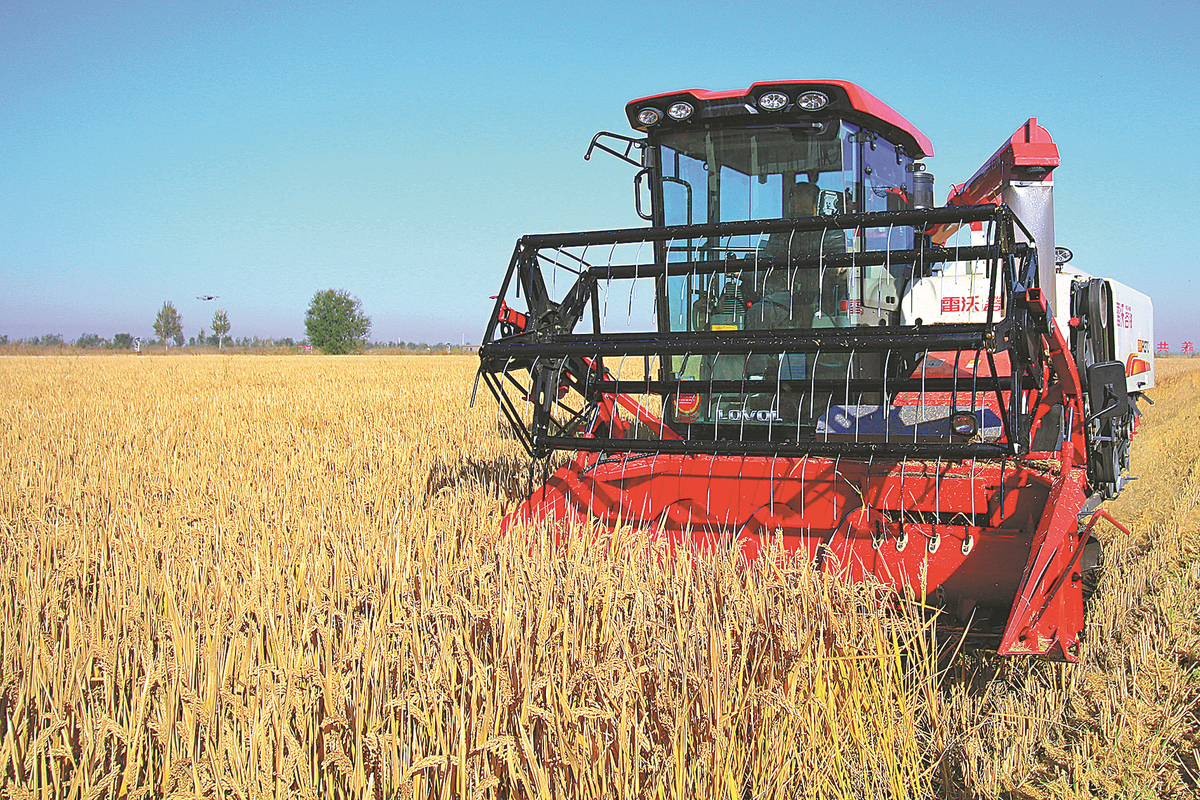Rice grown in salty soil revives barren land


Farmers began harvesting seawater rice on Tuesday, planted on 3,860 hectares of salt-affected land in the wetland area of Hanting district, Weifang, a coastal city in Shandong province.
The yield per mu (0.067 hectares) this year is 698.4 kilograms on average, and is the fourth consecutive year of increased yields, according to field tests carried out by five agricultural experts.
Several years ago, the land in the district was barren due to high salt content, which substantially reduced the grain yield. The wheat yield per mu on the land was less than 100 kg, forcing many farmers to abandon the land, according to the local government.
China has 100 million hectares of salt-affected soil, and one-third of it has the potential for agricultural activities, according to the Ministry of Agriculture and Rural Affairs.
Agricultural workers in China are committed to comprehensively using salt-affected soil by employing methods ranging from managing the soil to make it suitable for crops, to breeding salt-tolerant crop varieties.
On the large area of salt-affected land in Hanting district, Shandong Binyuan Agricultural Science and Technology Co has been working with a team formed by the late Yuan Longping, the nation's top agricultural scientist who was known as the "father of hybrid rice", to improve the salt-affected soil and cultivate salt-tolerant rice varieties for four years.
After four years' work, the once-barren land has been transformed into a productive area for seawater rice, demonstrating efficient comprehensive use of salt-affected soil, said Wang Maochang, who oversees the planting department of Shandong Binyuan company.
"For example, we are returning straw to the land to augment soil with organic matter," said Wang.
In addition to improving soil quality, agricultural experts have developed three localized rice varieties that are more salt-tolerant and have thicker stalks to withstand the wind in areas close to the coast, said Wang.
"To create more value in using salt-affected soil and bring more income to local farmers, we are developing a complete industrial chain that includes seawater rice planting, deep processing of rice and the tourism industry," he said.
The company has developed dozens of byproducts from seawater rice, such as liquor, rice noodles and condiments. "Seawater rice is rich in selenium, so the products made from it are healthy," said Wang, adding that seawater rice products have earned a good reputation.
In the tourism sector, the company is building a project that integrates sightseeing in the wetland area and agricultural education.
"The comprehensive use of the salt-affected soil will benefit the farmers of more than 20 villages," said Wang.
Within five years, the company will make comprehensive use of 12,000 hectares of salt-affected land in the district, further rolling out the tried and tested measures.
zhaoruixue@chinadaily.com.cn
Today's Top News
- Thailand and Cambodia agree to temporary ceasefire
- NPC's 4th annual session slated for early March
- Civilizational links for a fairer world
- Manufacturing in China spurs global growth
- Taiwan lawmakers vote to pass motion to impeach Lai
- Xi: Steadfastly implement conduct rules






























